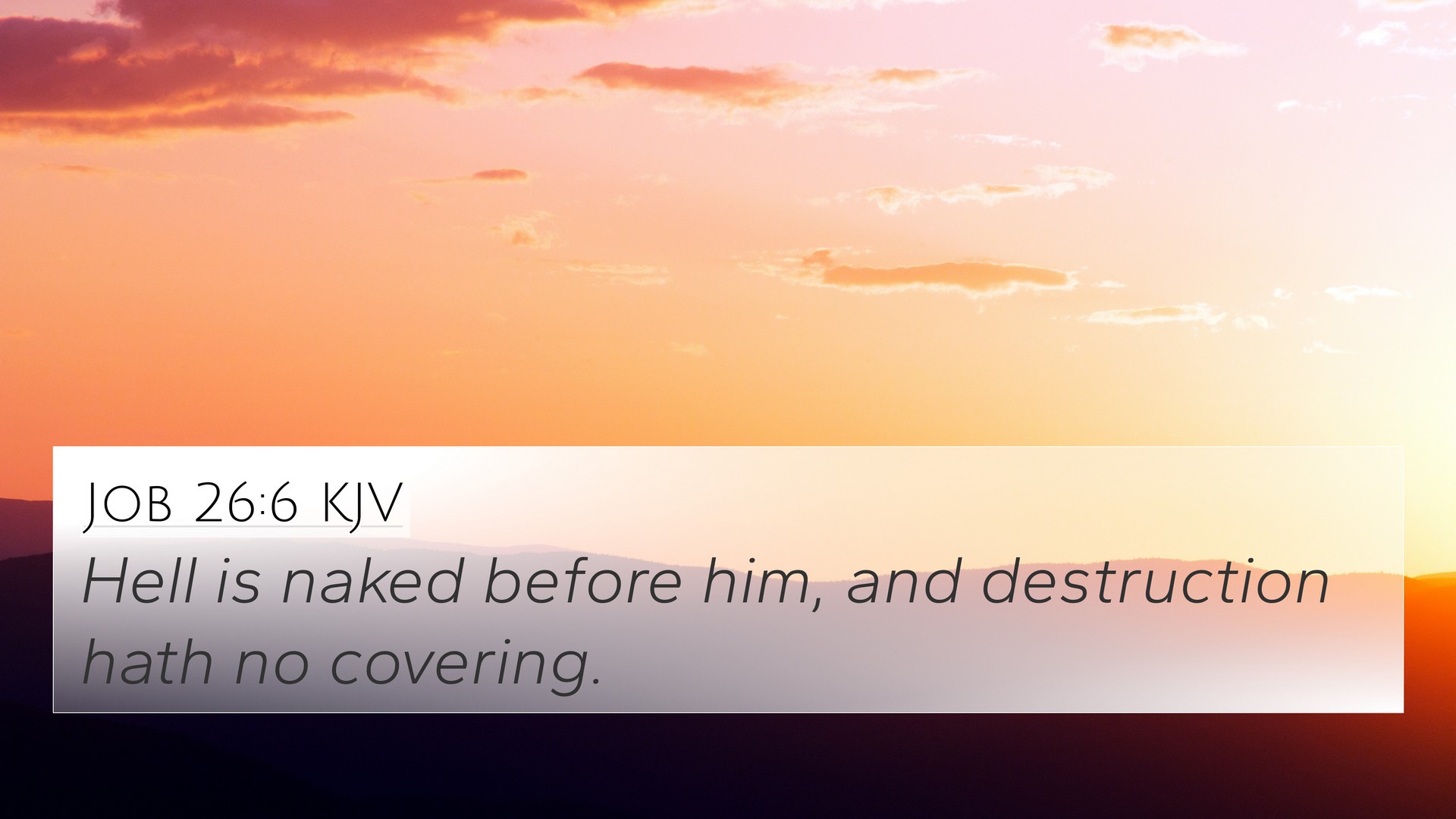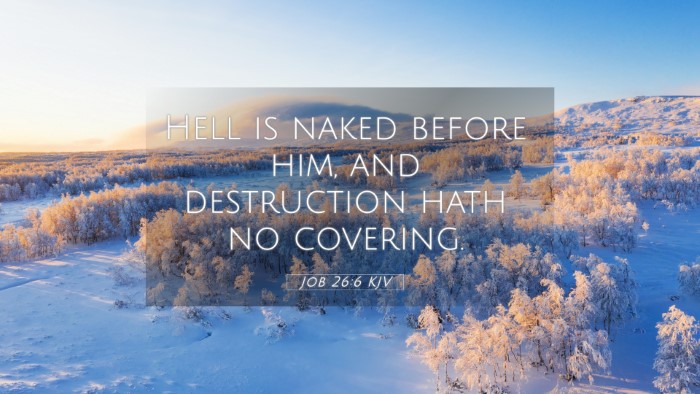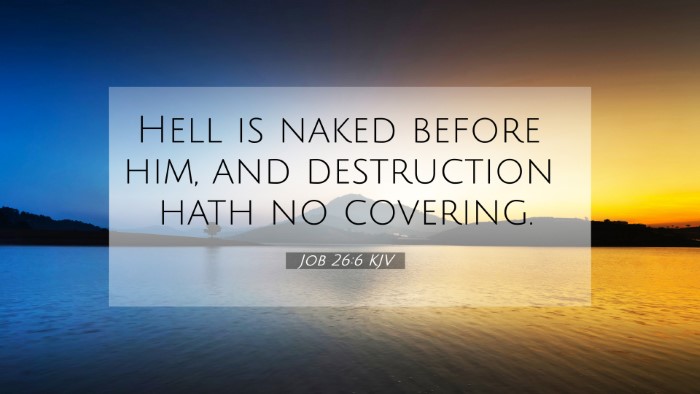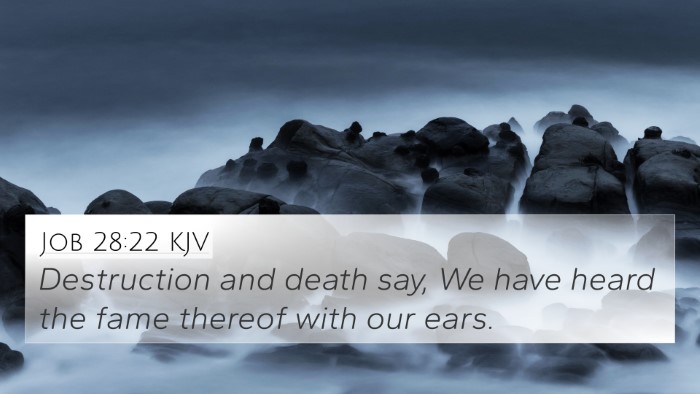Old Testament
Genesis Exodus Leviticus Numbers Deuteronomy Joshua Judges Ruth 1 Samuel 2 Samuel 1 Kings 2 Kings 1 Chronicles 2 Chronicles Ezra Nehemiah Esther Job Psalms Proverbs Ecclesiastes Song of Solomon Isaiah Jeremiah Lamentations Ezekiel Daniel Hosea Joel Amos Obadiah Jonah Micah Nahum Habakkuk Zephaniah Haggai Zechariah MalachiJob 26:6 Similar Verses
Job 26:6 Cross References
Hell is naked before him, and destruction hath no covering.
Uncover the Rich Themes and Topics of This Bible Verse
Listed below are the Bible themes associated with Job 26:6. We invite you to explore each theme to gain deeper insights into the Scriptures.
Job 26:6 Cross Reference Verses
This section features a detailed cross-reference designed to enrich your understanding of the Scriptures. Below, you will find carefully selected verses that echo the themes and teachings related to Job 26:6 KJV. Click on any image to explore detailed analyses of related Bible verses and uncover deeper theological insights.
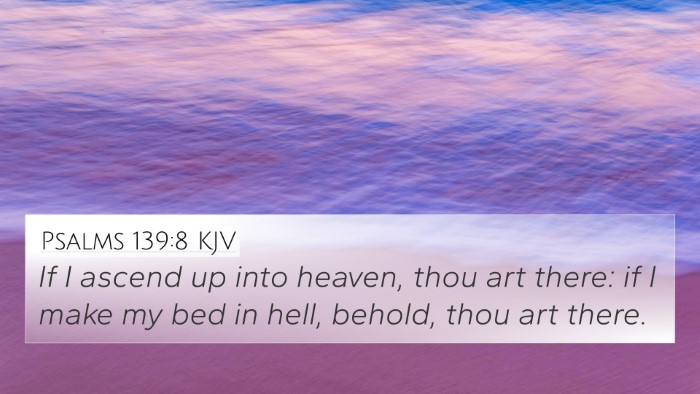
Psalms 139:8 (KJV) »
If I ascend up into heaven, thou art there: if I make my bed in hell, behold, thou art there.

Proverbs 15:11 (KJV) »
Hell and destruction are before the LORD: how much more then the hearts of the children of men?
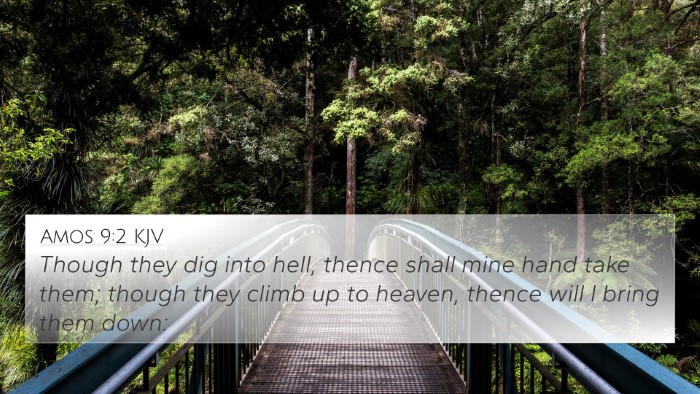
Amos 9:2 (KJV) »
Though they dig into hell, thence shall mine hand take them; though they climb up to heaven, thence will I bring them down:
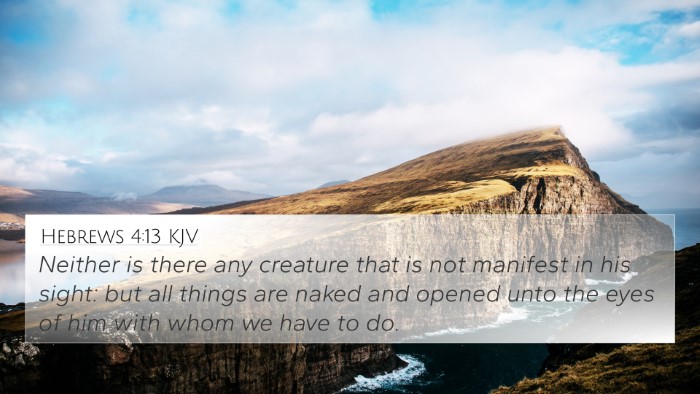
Hebrews 4:13 (KJV) »
Neither is there any creature that is not manifest in his sight: but all things are naked and opened unto the eyes of him with whom we have to do.
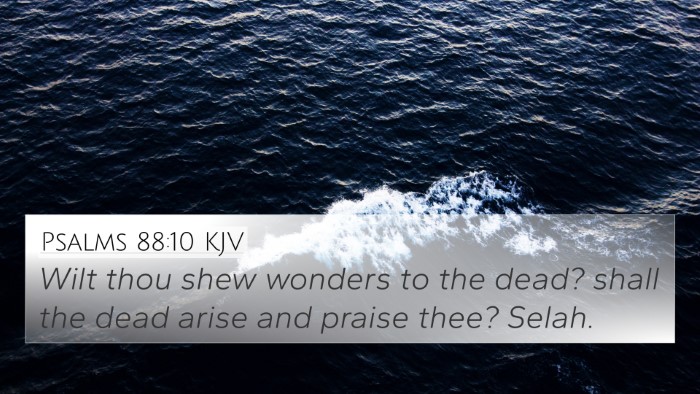
Psalms 88:10 (KJV) »
Wilt thou shew wonders to the dead? shall the dead arise and praise thee? Selah.
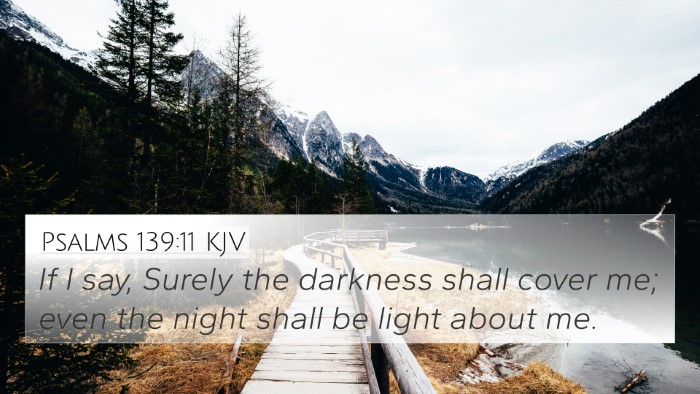
Psalms 139:11 (KJV) »
If I say, Surely the darkness shall cover me; even the night shall be light about me.

Job 41:11 (KJV) »
Who hath prevented me, that I should repay him? whatsoever is under the whole heaven is mine.
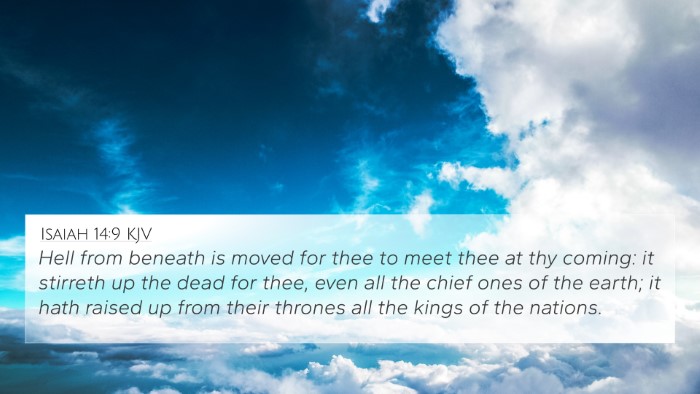
Isaiah 14:9 (KJV) »
Hell from beneath is moved for thee to meet thee at thy coming: it stirreth up the dead for thee, even all the chief ones of the earth; it hath raised up from their thrones all the kings of the nations.
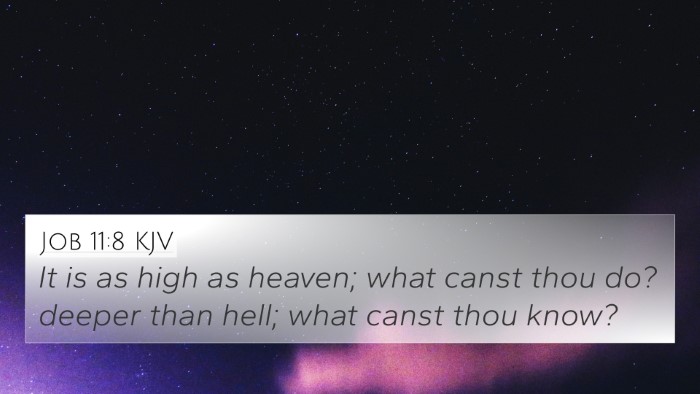
Job 11:8 (KJV) »
It is as high as heaven; what canst thou do? deeper than hell; what canst thou know?
Job 26:6 Verse Analysis and Similar Verses
Understanding Job 26:6
Job 26:6 states, "Naked is Sheol before Him, and Abaddon has no covering." This verse presents profound insights into the omnipresence and omniscience of God, asserting that no realm, whether physical or spiritual, is hidden from His sight.
Commentary Insights
Combining the insights from public domain commentaries, we find overlapping interpretations that enrich our understanding of this passage. Here are some key themes:
- Omnipresence of God:
According to Matthew Henry, this verse illustrates the fact that God's presence permeates all realms, including the grave (Sheol) and places of destruction (Abaddon). No one can hide from God's gaze, regardless of their state or nature.
- Nature of Sheol and Abaddon:
Albert Barnes elaborates that Sheol, often referred to as the place of the dead, and Abaddon, signifying destruction, both stand in their nakedness before God. There is no secret or shrouded aspect of these realms that escapes His knowledge.
- Divine Accountability:
Adam Clarke emphasizes the idea of divine accountability. Every individual, regardless of their earthly status or condition, will ultimately face God, and even places like Sheol cannot offer concealment from His judgment.
Thematic Connections
This verse connects deeply with various themes throughout the Bible. Here are some essential Bible verse cross-references related to Job 26:6:
- Psalms 139:7-8: "Where shall I go from your Spirit? Or where shall I flee from your presence? If I ascend to heaven, you are there! If I make my bed in Sheol, you are there!"
- Proverbs 15:11: "Sheol and Abaddon lie open before the Lord; how much more the hearts of the children of man!"
- Luke 16:23: "In Hades, being in torment, he lifted up his eyes and saw Abraham far off and Lazarus at his side."
- Hebrews 4:13: "And no creature is hidden from his sight, but all are naked and exposed to the eyes of him to whom we must give account."
- Revelation 20:14: "Then Death and Hades were thrown into the lake of fire. This is the second death, the lake of fire."
- Job 10:21-22: "Before I go, and I shall not return, to the land of darkness and the shadow of death; a land of darkness as darkness itself; and of the shadow of death, without any order, and where the light is as darkness."
- Ecclesiastes 12:7: "And the dust returns to the earth as it was, and the spirit returns to God who gave it."
Cross-Referencing Insights
The comparative analysis of these verses reveals how the concept of divine observation and judgment extends across both the Old and New Testaments, forming a cohesive understanding of God’s relationship with humanity. By engaging in cross-referencing Biblical texts we can draw comprehensive connections:
- Theme of Divine Knowledge and Sight: Both Job and the Psalms emphasize that no one can escape God's awareness, reinforcing the theme of His omnipresence.
- Judgment After Death: The connections drawn between Luke, Revelation, and Job emphasize the certainty of divine judgment that follows after death, highlighting the repercussions of one’s lived life.
- Nakedness Before God: Job’s illustration of nakedness refers to the stripping away of pretenses or hiding places before the absolute truth of God.
Application of Biblical Cross-Referencing Tools
For further study, utilizing tools for Bible cross-referencing such as a Bible concordance or a Bible cross-reference guide can enhance your understanding and deepen your study. Here are some methods:
- Bible Cross-Reference System: Employ a structured approach to link related verses. Tools can help identify thematic connections across scriptures.
- Comparative Bible Verse Analysis: Analyze parallels between the teachings of Old Testament figures such as Job and the New Testament perspectives on life, death, and judgment.
- Identify Themes and Their Cross-References: When studying a specific theme, use references to discover how different passages relate and expand on that theme.
Conclusion
In conclusion, Job 26:6 serves as a powerful reminder of God's omniscience and the inevitability of divine accountability. Through using cross-referencing Bible study methods, we can connect this understanding with other critical scriptures, leading to a more profound faith and comprehension of God’s nature and the fate that awaits every soul.
